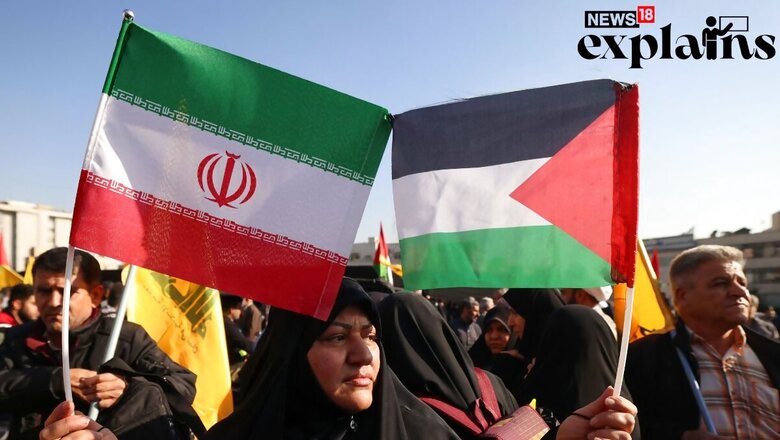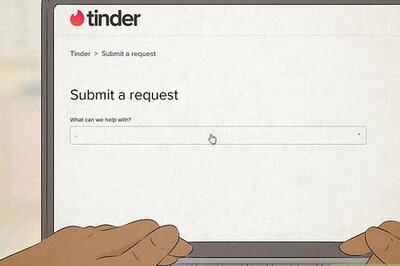
views
Since the war between Israel and Hamas broke out on October 7, Iran has been warning Israel and the United States of widening conflict over the civilian deaths in Gaza.
Iran, which lauded the “success” of Hamas militants during surprise attacks, has also condemned the Israel’s heavy retaliatory bombing calling it a “genocide” in the Gaza Strip, which has killed more than 8,000 people, mostly civilians.
Tehran is covertly backing Hamas militants, with arms and training, and also the Hezbollah group, which is launching attacks on Israel from Lebanon.
Israel’s Prime Minister Benjamin Netanyahu has also accused Iran of supporting Hamas and supplying “over 90 percent” of its military budget. However, both the Israel and Western leaders have also said there was no evidence Iran was directly involved.
Iran’s ‘Axis of Resistance’
Hezbollah and Hamas have long been part of a “joint operations room” that includes the Quds Force, which is the foreign operations arm of Iran’s powerful Islamic Revolutionary Guard Corps. These armed groups are part of the so-called “axis of resistance” — Lebanese, Palestinian, Syrian and other Iran-backed armed opposition to Israel.
Hezbollah, despite operating from Lebanon, supports Hamas because ideologically they are all formed as a result of opposition to Israel. Despite differences in their Islamic sect and geographical boundaries, these groups are united in their opposition to Israel.
Was Iran Involved in Hamas Oct 7 Attack?
As the war goes on for more than three weeks, Israel has ramped up its operations by launching a barrage of missiles with the US supporting the offensive.
However, Iran is wary of being dragged into the war as it may not be in full control of the militias in the region if they independently intervene, according to a report in CNN.
Days after the October 7 attack, Iran was suspected to being involved in the surprise attack on Hamas on Israel. However, Tehran denied any involvement and US intelligence also suggested that Tehran was surprised by the attack and it may not be directly involved in the planning.
“Iran is not interested in entering this war directly,” Iranian journalist and international relations expert Hadi Mohammadi said.
Sara Bazoobandi, research fellow at Germany-based GIGA Institute for Middle East Studies, also agreed that Iran may not be involved. “The Iranians made it clear from the outset that they do not want direct involvement or confrontation,” she said.
However, the country is engaged diplomatically in an effort to stop the Israeli attacks on Gaza. The country’s Supreme Leader Ayatollah Ali Khamenei also said that all Islamic nations have a duty to come to the aid of the Palestinians.
Risk of Spillover
Iran-backed Hezbollah has been exchanging occasional cross-border fire with the Israeli forces at the Lebanon border. The group claimed it had downed an Israeli drone and added that Israel had killed one of its fighters.
Though Iran has cautioned Israel against a full-blown ground invasion of Gaza, they have so far made limited incursions. The Israeli military has started overnight clashes inside Gaza calling it a “new stage” in the war, which would be “long and difficult”.
But the Islamic Republic has been trying to distance themselves from this crisis, because of the high risk of spillover, according to Sara Bazoobandi.
“Iran may see a spillover as a threat to its influence in the region and a potential threat to its territories,” she added.
The US has also deployed two aircraft carrier groups into the eastern Mediterranean in a move it says aims to deter Iran and Hezbollah from getting involved in the Israel-Hamas war.
Iran’s main security doctrines has for decades been to keep the conflict away from its own borders, experts believe. The country is only likely to engage in direct conflict “if Israel attacks the Iranian territory or Iran’s strategic interests in other countries,” Hadi Mohammadi said, according to AFP.
Analysts also believe that the Israel-Hamas war has already achieved the predestined targets set by Tehran: to derail the normalisation between Israel and Saudi Arabia.



















Comments
0 comment